Search Images
Browse Content (p. 1394)

Image
Egyptian Execration Figure
Egyptian 'Voodoo Doll', Rijksmuseum van Oudheden, Leiden.
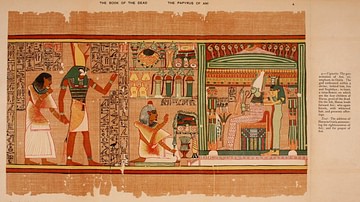
Image
Negative Confession, Papyrus of Ani
Ani's soul is acquitted after the Negative Confession.

Image
Papyrus of Ani
The Papyrus of Ani, a text of The Egyptian Book of the Dead, was prepared for the priest Ani of Thebes (c. 1250 BCE) and included among the grave goods of his tomb. It includes a number of chapters from the Book of the Dead.
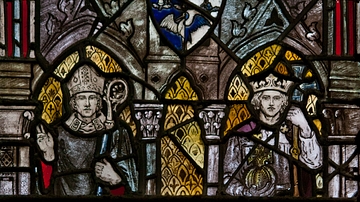
Image
St Oswald & St Aidan
Detail from a window in Newcastle Cathedral of St Oswald who worked closely with St Aidan of Lindisfarne to evangelize the people of Northumbria. St Oswald was king of Northumbria but was killed in 642 by a pagan king, and so is considered...
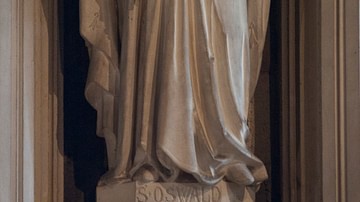
Image
Oswald of Northumbria
Detail from a reredos in St Aidan's church in Bamburgh of the martyr and king of Northumbria, St Oswald.
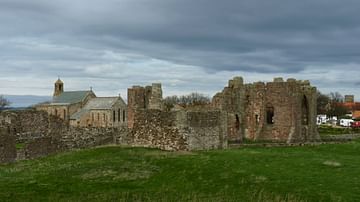
Image
Lindisfarne
The ruins of Lindisfarne Priory.
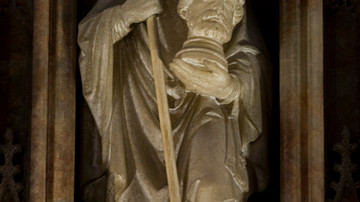
Image
St Cuthbert with St Oswald's head
This is a detail of an alabaster statuette in the reredos of Newcastle Cathedral.

Image
Scene from the Tale of Genji
Part of a cabinet for storing volumes of the Tale of Genji, the 11th century CE classic novel by Murasaki Shikibu. The scene is from that novel. Maki-e lacquer, Edo period, 17th-18th century CE. (Tokyo National Museum)
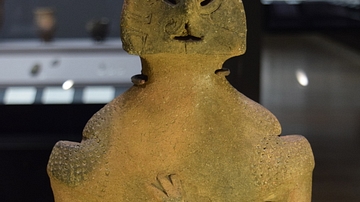
Image
Dogu Figurine, Jomon Period
A clay dogu figurine. From Kamikurokoma, Fuefuki-shi, Yamanashi, Japan. Jomon Period, 3000-2000 BCE. (Tokyo National Museum)
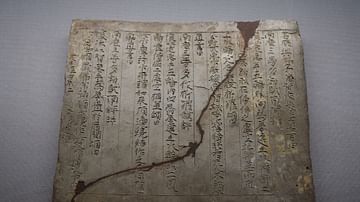
Image
Sutra Inscribed Tablet
A clay tablet carrying a sutra inscription. From Komachizuka Sutra Mound, Tanga, Uraguchi-cho, Ise-she, Mie, Japan. Heian Period, dated 1174 CE. Important Cultural Property. (Tokyo National Museum)